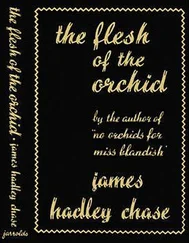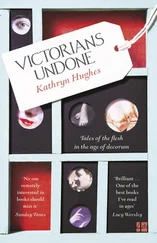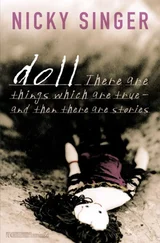Dedication Dedication Chapter 1 Chapter 2 Chapter 3 Chapter 4 Chapter 5 Chapter 6 Chapter 7 Chapter 8 Chapter 9 Chapter 10 Chapter 11 Chapter 12 Chapter 13 Chapter 14 Chapter 15 Chapter 16 Chapter 17 Chapter 18 Chapter 19 Chapter 20 Chapter 21 Chapter 22 Chapter 23 Chapter 24 Chapter 25 Chapter 26 Chapter 27 Chapter 28 Chapter 29 Chapter 30 Chapter 31 Chapter 32 Chapter 33 Chapter 34 Chapter 35 Chapter 36 Chapter 37 Chapter 38 Chapter 39 Chapter 40 Chapter 41 Chapter 42 Chapter 43 Chapter 44 Chapter 45 Chapter 46 Chapter 47 Chapter 48 Chapter 49 Chapter 50 Chapter 51 Chapter 52 Chapter 53 Chapter 54 Chapter 55 Chapter 56 Chapter 57 Chapter 58 Chapter 59 Chapter 60 Chapter 61 Chapter 62 Chapter 63 Chapter 64 Chapter 65 Chapter 66 Chapter 67 Chapter 68 Chapter 69 Chapter 70 Chapter 71 Chapter 72 Acknowledgments Also by Nicky Singer Copyright About the Publisher
For my daughter Molly,
who taught me everything I needed to know to write this book,
and who is teaching me still.
Contents
Cover
Title Page
Dedication
Chapter 1
Chapter 2
Chapter 3
Chapter 4
Chapter 5
Chapter 6
Chapter 7
Chapter 8
Chapter 9
Chapter 10
Chapter 11
Chapter 12
Chapter 13
Chapter 14
Chapter 15
Chapter 16
Chapter 17
Chapter 18
Chapter 19
Chapter 20
Chapter 21
Chapter 22
Chapter 23
Chapter 24
Chapter 25
Chapter 26
Chapter 27
Chapter 28
Chapter 29
Chapter 30
Chapter 31
Chapter 32
Chapter 33
Chapter 34
Chapter 35
Chapter 36
Chapter 37
Chapter 38
Chapter 39
Chapter 40
Chapter 41
Chapter 42
Chapter 43
Chapter 44
Chapter 45
Chapter 46
Chapter 47
Chapter 48
Chapter 49
Chapter 50
Chapter 51
Chapter 52
Chapter 53
Chapter 54
Chapter 55
Chapter 56
Chapter 57
Chapter 58
Chapter 59
Chapter 60
Chapter 61
Chapter 62
Chapter 63
Chapter 64
Chapter 65
Chapter 66
Chapter 67
Chapter 68
Chapter 69
Chapter 70
Chapter 71
Chapter 72
Acknowledgments
Also by Nicky Singer
Copyright
About the Publisher Конец ознакомительного фрагмента. Текст предоставлен ООО «ЛитРес». Прочитайте эту книгу целиком, купив полную легальную версию на ЛитРес. Безопасно оплатить книгу можно банковской картой Visa, MasterCard, Maestro, со счета мобильного телефона, с платежного терминала, в салоне МТС или Связной, через PayPal, WebMoney, Яндекс.Деньги, QIWI Кошелек, бонусными картами или другим удобным Вам способом.
I find the flask the day the twins are born, so I think of these things as joined, as the twins are joined.
The flask is in the desk, though it is hidden at first, just as the desk itself is hidden, shrouded inside the word bureau – which is what my gran calls this lump of furniture that arrives in my room. I hate the desk. I hate the bureau. It is a solid, everyday reminder that my aunt Edie is dead.
Aunt Edie isn’t – wasn’t – my real aunt, she was my great-aunt, so of course she must have been old.
“Ancient,” says my friend Zoe. “Over sixty.”
Old and small and wrinkled, with skin as dry as paper.
No.
Her bright blue eyes gone milky with age.
No. No!
My aunt Edie blazed.
At the bottom of her garden there was a rockery in which she grew those tiny flowers that keep themselves closed up tight, refusing to unfurl until the sun comes out. They could be closed up for hours, for days, and then suddenly burst into life, showing their dark little hearts and their delicate white petals with the vivid pink tips. That’s what I sometimes thought about Aunt Edie and me. That I was the plant all curled up and she was the blazing sun. That she, and only she, could open up my secret heart.
A week after her death, I find myself standing by that rockery staring at the bare earth.
“Looking for the mesembryanthemums?” says Si. Si’s my stepfather and he’s good with long words.
I say nothing.
“They’re annuals, those flowers, the ones you used to like. Don’t think she had the chance to plant any this year.”
I say nothing.
“What’re you thinking, Jess?”
Si is good with questions. He’s good with answers. He’s good at talking. He’s been talking in my life since I was two.
“About the music,” I say.
I’m thinking about Aunt Edie and the piano in her drawing room. About how her tiny hands used to fly over the keys and the room fill with the sound of her music and her laughter. I’m thinking about the very first time she lifted me on to the stool to sit beside her as she played. I must have been about three years old. There was no music on the stand in front of her, she played, as she always did, from memory, or she just made stuff up. But I didn’t know that then. I thought the music was in her hands. I thought music flowed out of people’s fingers.
“Come on, Jess, your turn now!”
And that very first day, she put my hands next to hers. My hands on the keys of the piano, the keys to a new universe. And, of course, I can’t have made a tune, I must have crashed and banged, but that’s not how I remember it. I remember that she could make my fingers flow with music too. I remember my dark little heart opening out.
After that I couldn’t climb on to that stool fast enough. Every time I went to her house, I would pull her to the piano and she would lift me, laughing. When I sat on that stool nothing else in the world existed. Just me and Edie and the music. Time passed and my legs got longer. I didn’t need to be lifted on to the stool. And still we played. Hidden little me – unfurling.
“Where shall we go, Jess?” she’d ask “What’s your song today?”
My song.
Our song.
I thought it would last for ever.
Then she was dead. It was Gran who found her. Gran and Aunt Edie were sisters. They had keys to each other’s houses, had lived next door to each other for the best of forever. In the fence that separates their gardens there is a little gate. During daylight hours, summer and winter, they kept their back doors open, and you never knew, if you called on them, in whose house you’d find them. So they were joined too.
All sorts of things I’d thought of as separate before the twins were born turn out to be joined.

The whole family gathers at the crematorium for the funeral. The hearse is late. My cousin Alistair, who is only five, keeps asking when Aunt Edie is going to arrive. Finally, the hearse turns up with the great brass-handled coffin.
“But where’s Aunt Edie?” persists Alistair.
The grown-ups hush him, but I know what he means. You’re invited to Aunt Edie’s for tea and there she is with a plate of Marmite sandwiches. You’re invited to her funeral, why wouldn’t she be there too? Aunt Edie at the crematorium with a plate of Marmite sandwiches.
Besides, as I know (and Alistair obviously knows), you can’t put the sun in a box.
After the service there is a party at Gran’s which Si calls a wake. I don’t ask about the word wake but Si, with his Best Explaining Voice, tells me anyway. The old English root of the word, which means being awake, he says, changed in late medieval times to wacu. He pronounces this like wacko. It means watching over someone, he tells me. People used to sit up overnight, apparently, with dead bodies, watching.
Читать дальше













